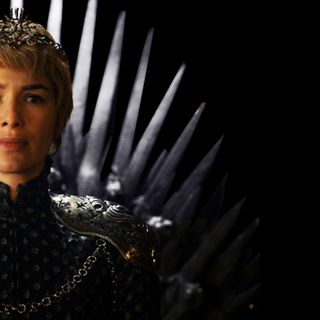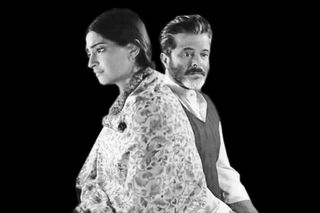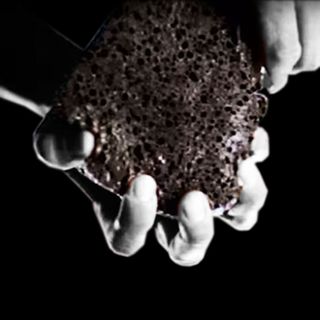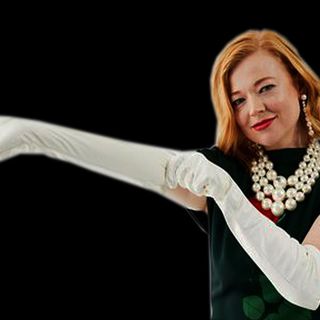
What It’s Like to Be Openly Queer and Exist Within an Indian Family
Coming out is simply the first step. The subsequent acceptance, or lack thereof, is what defines familial relationships.

Coming out of the closet — self-disclosing one’s sexual and/or gender identity — for members of the LGBTQIA+ community is often a daunting process replete with uncertainties. In a queerphobic or queer-ignorant society, coming out to friends, family, or on public platforms can incite a range of responses — from absolute antipathy to conditional or unwitting acceptance to a loving and welcoming embrace. Even if the response is relatively positive, familial acceptance of queerness exists on a spectrum — often determined by how everyday routines and interactions are handled by all parties involved.
What happens after a queer person comes out? The hard part may be over, but what follows is a daily, unrelenting negotiation asking for complete freedom and understanding — one which often defines familial relationships for life. We asked queer Indians about their relationships with their families and what their routines look like.
*
K.D., 36, knew he was gay since he was a 13-year-old boy. Growing up in a family that stressed academic excellence, however, led him down a path of accumulating degrees and gaining professional experience, which left little time for exploring his sexuality with others. At 27, when he moved back home after studying abroad, his parents started pressuring him to get married. Under the pretext of finding him a job, his parents wrangled his resume out of him, which, it turned out, they used to send to potential matches for his marriage.
At a loss of what to say to his conservative parents, he asked for a buffer time of two years, hoping his mother would forget about finding him a wife. Two years passed, but his mother didn’t back down. K.D. thought, “game over.” He came out to his sister, hoping she would help him with his parents. “She said she would support me but is not going to do my ‘dirty work’ for me.” Finally, K.D. told his parents he couldn’t marry, because he was gay. His mother’s first reaction was flat out denial, wherein she compared him to hijras she had seen in public, mistaking them for homosexual men. His father, K.D. recalls, while expressing nonchalance at his son’s wish to not get married, asked K.D., “Do you not get an erection?”
Fortunately, by then, K.D. was living by himself and could enjoy certain social freedoms without needing his parents’ permission. His mother, however, K.D. says, was relentless — she constantly pestered him to be like other gay men she knew who were older, had been forced to suppress their sexuality, marry women and have children. Then, K.D. recalls, she consulted a “homosexuality specialist,” who advised her to tell K.D. to “not be gay” for two years, after which K.D. would become straight. “She was asking me to be celibate for two years. I told her, ‘I’ll be celibate for my entire life and I will still be gay.'” Then, “she said, ‘you be gay; keep it as a hobby. But you get married.'”
Related on The Swaddle:
Parents Everywhere Struggle to Talk to LGBTQ Kids About Sex
When K.D. told her he would not be able to consummate the marriage and that he had no desire to ruin another woman’s life, she found a girl who was okay with a sex-less marriage and asked him to just “show up” at the wedding, K.D. recounts, adding she told him to prioritize her happiness because she had raised him and provided him with clothing and a good education. “It’s typical desi bullshit — treating children as [an] investment. I didn’t realize that this was a contract of terms and conditions,” K.D. said. “I was also feeling bad for her — throughout all the various tactics it was her trying to make sense of her life. [My sexuality] was not something she had ever thought would happen to her. She saw this as something that was happening to her. It was like ‘why me, why me?'”
After years of negotiations, during which K.D.’s mental and physical health considerably worsened, he came to an agreement with his mother — she would tell everyone who asked after his marriage that K.D. was asinine and would find someone by himself, while K.D. agreed not to disclose his sexuality to anybody in their circle of friends.
“She has blocked off the orientation part; she has made peace with the fact that I’m not getting married. My parents know nothing about my life. My emotional side is not something they are privy to or interested in.”
For K.D., the period after coming out eventually settled into a ‘don’t ask, don’t tell’ dynamic with his parents — a semi-peaceful situation that arose after years of doing mental labor — both on his, and his parents’, parts.
*
Tanya, 31, has always had a close relationship with her parents — she describes her family as a “strong, tight unit.” As a 20-year-old, Tanya was in her first-ever relationship with a woman — until they got caught by both of their parents. “It just sort of blew out of proportion. They made us change our phone numbers and banned us from seeing each other.” Despite the strict measures, Tanya said her parents still had her back, recalling an instance when her girlfriend’s mother was rude to her, and her parents stepped in, chiding the woman for mistreating their daughter.
For a couple of years, Tanya says her father chalked off her relationship as a mistake. During that time, Tanya says she didn’t entertain any relationships with women — partly due to her parents’ reactions the last time she had, and partly because she was still trying to figure out her sexuality. But, “there was huge guilt in me, that my parents had stood by me. I didn’t want to put them through the whole ‘what would people say’ thought process. I wanted to be married to a guy, for them.”
Eventually, Tanya started to write for Gaysi, an Indian queer media outlet, and started meeting other queer people. When she attended her first Pride in the U.S., she felt compelled to have a conversation with her parents — which everyone had been avoiding until that moment. When Tanya came out, her mother said she was heartbroken; her father told her being gay was nothing to be proud of. Tanya recalls responding, “It’s nothing to be ashamed of, either.” She says after a few hours, when her parents had time to process her coming out, they had said, “‘Are we ecstatic about this? No. But are we going to get in your way? No.’ They even told me to go to the U.S. because they thought life would be easier for me there.”
Since coming out, Tanya has concertedly revealed details about her relationships to her parents; she has had debates about homosexuality with her mother and has attempted to explain why coming out to the larger population is also important to her. “I told her, you don’t need to go and shout from the rooftops that you’re straight. You start from ground zero, and we start from the negative. For my right to exist, to be able to marry and have children, I need to fight and speak out all the time.”
In her parents’ friend circles, Tanya often encounters queerphobic and queer-ignorant people, she says, but stresses that it’s not her place to come out to her parents’ friends, nor is it her place to school anyone. “As much as it is my right to communicate and act the way I want to, so is theirs,” she says, adding she can wait until they feel comfortable telling their own circle about her sexuality. In the meantime, however, Tanya reiterates that her family has never stood in her way; that they have had her back. Earlier this year, Tanya says she came out publicly and even appeared in a video in which she talked about her sexuality.
“They’ve never come back and said ‘why did you do this?’ They’ve never said this is wrong; the extended family has put so much pressure on them, asking them ‘why aren’t you getting Tanya married.’ They read up on homosexuality; they follow the news,” Tanya says. “I’ve been lucky to be born into this family.”
For Tanya, a slow and steady process of asserting herself and creating space for her sexuality in her family ultimately led to a kind of acceptance that might not be fully informed but has increasingly become comfortable to exist with.
*
Muskan Varma was 21 when her father sat her down and asked if she had a boyfriend. When Varma said no, her father asked if she was gay. “I dodged the question somehow. An hour later, he came back to ask me if I had a girlfriend, which I did back then. I was dreading it because he is an ex-army officer. But I went for it and all he said was ‘okay.’ No questions asked…. I think that was one of the happiest days of my life.”
Since, Varma says her parents regard her sexuality as no different from if she had been heterosexual, adding they are also accommodating of her girlfriend. “After my last breakup, which was about three years ago, they have been worried because it was a bitter one and I was quite broken; they have seen me go through it and they don’t want this to happen again.”
When her current girlfriend met Varma’s father, Varma recalled her father being “extremely sweet; he asked her if she wanted a drink. He did ask her a few questions, like any father would. [He was] trying to understand where she is coming from, trying to decipher if there are any red flags; he found none. Then my girlfriend and I flew to Delhi because she really wanted to meet my mother and my dog. That interaction was also extremely warm; they both spoke and bonded. My dog loves her, thank god.”
Related on The Swaddle:
Gender And Sexuality Terms: A Sensitive Glossary For Parents
Varma says her parents have created a space for her and her girlfriend to exist comfortably — “[my girlfriend] is very caring towards my parents; she meets my father over the weekends; we go for movies and go out for lunches. She asks him how he is doing. My father every morning sends her ‘Good morning’ messages, which is extremely cute. She and my mother do video calls.”
Sulagna Chatterjee, 23, also boasts of a similarly welcoming atmosphere at home. For Chatterjee, her mother was a big part of the process of her coming to terms with her bisexuality. In 2016, Chatterjee said she was struggling with being bisexual, during which time her mother was the greatest source of emotional support. When Chatterjee was finally ready to officially come out — incidentally on the same day the Supreme Court decriminalized homosexuality in September 2018 — her mother’s response was “anticlimactic,” Chatterjee recounts; “she just said, ‘Cool.'”
“Even when I was dating boys; I told [my mother] about my first kiss, my first relationship, my first heartbreak … My mother is someone who gives me a lot of reality checks in life. … As a queer woman who is navigating her way through dating women, we don’t have reference points when it comes to what is healthy or unhealthy behavior; the only no-no is don’t be a trashy guy; … what would a guy do that would make you feel uncomfortable, don’t do that,” Chatterjee said, adding her mother has often called her out on unhealthy behaviors in relationships.
When Chatterjee went through a rough heartbreak, she says her mother was there for her — sometimes with a shoulder to cry on and a glass of vodka after. Despite the closeness, Chaterjee admits, “It took me a while to open up to them even though I’ve been close with them — there was some kind of a mental block for me.”
*
While coming out and being open and comfortable with one’s own sexuality or gender identity can be navigated by some, it’s also not an option for many.
“Some of us negotiate acceptance and fears of rejection in more ambiguous ways,” G.V., 21, who identifies as non-binary and pansexual, said. “I think some of us can’t come out. We are already different in the world’s eyes; people around us see it, even if they don’t have the vocabulary to recognize or understand it at the time. … Instead of dramatic comings-out, I think many of us test the waters — rejecting certain forms of masculine performance, for example.”
In college, G.V. wore lipstick, kajal and had shoulder-length hair — only the hair remained when they moved back home. Even then, G.V. was told by their parents not to “look like a girl.” “I made a bundle of my lipstick, nail polish, and kajal, and gave them away. I retreated to the strange, uncertain safety of the closet,” G.V. said, adding that their parents have had suspicions over the years regarding their masculinity, which they have fended off by growing a mustache or a beard.
“Of course so many of us live double lives, lives in many multiples,” which G.V. calls watertight compartments. “Maybe they’ll collapse into each other someday.”
Related on The Swaddle:
Can Parenting LGBTQ Kids Be 100% Supportive in India?
A major part of not disclosing their identity to their family is also about G.V.’s contemplation of masculinity, they say. “I think I fled from hetero-ish encounters because I could never feel masculine enough. … For whatever reason, I’m a bit scared of driving; so my brother drives, or rides shotgun. … I don’t know if I’m reading into this, but I almost always know that my place is always somehow going to be as less of a man.”
When G.V.’s parents ask them if they have “any odd tendencies” or if they are “one of those oddballs,” or even when their parents tell them they would be “loved no matter what” — their “reaction was mostly knee-jerk denial.” Coming out is understood in a “painfully unidimensional way,” G.V. says, which “rarely accounts for how these newly emergent truths grapple with existing, and often toxic, family dynamics.”
“There’s a world of confused, bleak grey between the rainbow-tinted family acceptance, and getting disinherited and thrown out.”
Rajvi Desai is The Swaddle's Culture Editor. After graduating from NYU as a Journalism and Politics major, she covered breaking news and politics in New York City, and dabbled in design and entertainment journalism. Back in the homeland, she's interested in tackling beauty, sports, politics and human rights in her gender-focused writing, while also co-managing The Swaddle Team's podcast, Respectfully Disagree.
Related


Indian Anti‑Smoking Laws Have Failed to Change Cultural Acceptance of Smoking
